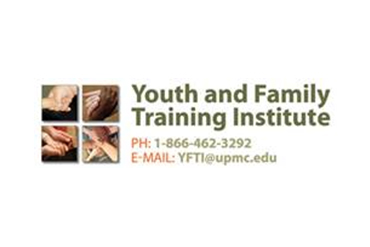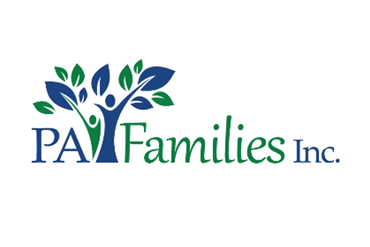Schedule for Thursday, May 3, 2018
Schedule for Thursday, May 3, 2018
Full Breakfast 8:30-9:15 a.m.
Keynote Address
Doing One Thing Right, Right Now, to Serve Children and Youth
in Adversity
Junlei Li, PhD, Rita M. McGinley Chair in Early Learning and
Children’s Media; Professor of Psychology and Human
Development; Co-Director of Fred Rogers Center, Saint Vincent
College, Latrobe, PA
Serving children who face adversity requires us to understand and address a
complex system of challenges and opportunities. Yet there still is something
deep and simple that connects all of our work across settings and disciplines.
From orphanages to impoverished neighborhoods, we can discover and
appreciate caregivers’ intuitive yet powerful human interactions. By
capturing and learning from what ordinary people do extraordinarily well in
simple, everyday moments, we can grow communities of practice, nurture
intuition into intention, and plant the seeds for sustainable systems change.
9:30-11:00 a.m. Workshops (90 minutes)
TH 1
Level:
Audience: all
Growing Simple Interactions Across Communities of Practice
Junlei Li, PhD, Rita M. McGinley Chair in Early Learning and
Children’s Media; Professor of Psychology and Human
Development; Co-Director of Fred Rogers Center, Saint Vincent College, Latrobe, PA
How do we encourage, enhance, and empower the human relationships
around children and youth in adversity? Real and lasting change can start
with finding what ordinary people do extraordinarily well with children in
simple, everyday moments. In this workshop session, we practice an
approach to understand practice, program, and policy that rely on capturing
and learning from everyday, “simple interactions”, in a variety of settings,
including orphanages, youth development, and low-income child care
providers. We explore how this approach may complement and support the
larger work of professional development and system change.
TH 2
Level: Basic
Audience: Y
"T.A.A.G." You're It! Lived It, Learned It, Survived It!
Karan A. Steele, Prevention, Education, and Outreach Coordinator,
Beacon Health Options, Seven Fields, PA
TAAG Members to be determined
The TAAG presentation allows attendees to understand the youth/young
adult voice. How TAAG members can lead and how to support them as
allies. Do with, not for and cheer them on as they continue their recovery journeys.
TH 3
Level: Basic
Audience: Y
Let's Think Again: Changing Attitudes That Stigmatize
Lynn Keltz, MA, Executive Director, PA Mental Health Consumers'
Association, Harrisburg, PA
Zack Karenchak, Policy and Program Development Coordinator,
Youth MOVE PA and PMHCA, Harrisburg, PA
Corey Ludden, Technical Assistance and Engagement Coordinator,
Youth MOVE PA and PMHCA, Harrisburg, PA
The presentation includes a documentary entitled “What Are You
Thinking?” produced by The Stigma Project followed by an interactive
discussion. The goal of the 40-minute documentary is to expose viewers to
stigmas against people with disabilities, and encourage them to examine
their own stigmatizing behavior. The documentary features experts who
explain how stigma contributes to the way we think about people with
disabilities. Participants will find several actions they can take to make an
impact on stigma.
TH 4
Level: Basic
Audience: C
Overview of Substance Misuse Patterns for Adolescents and
Review of Medication Assisted Treatment for Opioid Use
Disorders
Tiberiu Bodea Crisan, MD, Senior Medical Director, Community Care, State College, PA
David Loveland, PhD, Senior Program Director, Community Care, Pittsburgh, PA
Family Responder to be determined, Member of Community Care
Corporate Families of Child and Youth Members Advisory Board
Reviewing substance use patterns of adolescents and effective treatment for
individuals with an opioid use disorder (OUD) will be the primary themes
of the workshop. The workshop will include two sections: 1. An overview of
substance use and abuse patterns of adolescents and young adults and 2. A
review of research on Medication Assisted Treatment (MAT) for individuals
with an OUD and how it can be applied in PA.
TH 5
Level: Intermediate
Audience: C, XS, Co
30 Years In—It’s the Simple Things That Matter: Clinical and
Career Reflections on Helping Skills
Michael C. Wolff, PhD, CADC, Director, Penn State Psychological Clinic, University Park, PA
This presentation will be focusing on aligning evidenced based practices
with real-world problems and solutions. I have found after 30 years of
providing direct services, that it’s the simple things that really matter. While
these skills may be simple, they are often quite challenging to employ. I will
be reviewing various evidence-based practices which I believe support a
“common theme” perspective, highlighting specific skills that must be
learned to be better clinicians, colleagues, supervisors, and administrators.
Trauma, the Brain, and Sensory Regulation Strategies.
TH 6
Level: Basic
Audience: C, XS, Co, EC
Trauma, the Brain and Sensory Regulation Strategies
Deanna Moerer, Co-Director Safe Schools Health Students IU1, PaTTAN, Stroudsburg, PA
Molly Flood/Special Education Supervisor, IU2, Schnecksville, PA
Todd Breinich, Emotional Support Interventionist, CLIU #21, Schnecksville, PA
An interconnected Systems Framework in collaboration with community
partners, to providing mindfulness practices and mental health supports for
high-risk students to prevent bullying, decrease office discipline referrals
and decrease violent behavior through scale-up of multi-tiered SWPBIS.
TH 7
Level: Advanced
Audience: C, XS, Co, EC
Treating Trauma in Young Children: Using CPP in Community Programs
Teri Pentz, MS, LPC, NCC, Behavioral Health Therapy Supervisor,
Matilda Theiss Early Childhood Trauma Treatment Center, Pittsburgh, PA
Kimberly Blair, PhD, Associate Professor of Psychiatry, University of Pittsburgh, Pittsburgh, PA
Patrick McKelvey, MS, LPC, NCC, Clinical Program Manager, Matilda Theiss Early Childhood Behavioral Health, Pittsburgh, PA
Young children are both our most vulnerable and most resilient population.
Rates of victimization are highest among the youngest children and this
early trauma impacts social, emotional, and neurobiological development.
The need for evidence-based trauma treatment that supports both the child
and the caregiver is crucial. This presentation will discuss how Child-Parent
Psychotherapy (CPP) has been used in clinic, center and community
programs. This presentation will use case studies and video of actual families.
TH 8
Level: Basic
Audience: F, C, XS, EC
Intensive Family Coaching Within the Early Childhood Wellness Initiative
Virginia Johnson, PhD, Manager of Psychological Services,
Community Care Behavioral Health Organization, Pittsburgh, PA
Pamela Dotson, MA, Coordinator, Care Management, Community
Care Behavioral Health Organization, Pittsburgh, PA
Heather Hoeke, LCSW, Assistant Director of Outpatient Services, Wesley Family Services, Pittsburgh, PA
Megan Hoffman, LPC, Clinical Manager of PCIT, Wesley Family Services, Bridgeville, PA
The Early Childhood Wellness Initiative includes an Intensive Family
Coaching model which is an adaptation ofParent Child Interaction Therapy
(PCIT) for use in the home. This model uses evidence-based practice and is
targeted to families in which parents would benefit from strengthening
behavioral management as well as positive relationships with their children.
This presentation will describe the treatment model in detail and define families who may benefit from its use.
TH 9
Level: Intermediate
Audience: F, C, XS, Co
The Development of Applied Behavioral Analysis in Community Programs
Tim D. Caldwell, MEd, LBS, BCBA, Director of ABA Services, WellSpan Philhaven, Mount Gretna, PA
Patricia J. Delaney, MA, LBS, BCBA, Behavior Analyst, WellSpan Philhaven, Lebanon, PA
Sheryl A. Watson, MEd, LBS, BCBA, Behavior Analyst, WellSpan Philhaven, Harrisburg, PA
This presentation outlines the administrative and clinical systems that
WellSpan Philhaven has created to provide high-quality community based
programming based on the science of Applied Behavior Analysis. The
following will be discussed: training of clinical staff, measurement of staff
learning and implementation of programming, involvement and education
of individuals and caregivers in treatment, data collection and data-based
decision making, utilization of research to inform practice, and the
integration of BACB and OMHSAS regulations.
TH 10
Level: Basic
Audience: Y, F, C
Youth Ambassador Program: A Beaver Co SOC Youth Initiative
Maureen Hawk, BCRC
Susan Smith, BCRC
Ales Jendrek, HPW Associates
The Youth Ambassador Program is a student-driven program intended to
promote awareness of current issues youth face today. By participating in
county-wide and district level training events, youth have gained knowledge
of behavioral health issues and local resources to combat stigma. This
presentation will describe the program as well as the process to establish it
and the impact it’s had on the school districts and the community. Data will
be shared as well as the successes and challenges of the program.
TH 11
Level: Basic
Audience: C
It Takes a Village: Supporting Youth Experiencing Homelessness
Melissa DeMotta, MSW, Site Coordinator, Education for Children
and Youth Experiencing Homelessness, Berks County Intermediate Unit, Reading, PA
Tabitha Kramer, Specialist, Education for Children and Youth
Experiencing Homelessness, Berks County Intermediate Unit, Reading. PA
Sheila Bressler, Berks County CASSP Coordinator, Berks County
Mental Health/Developmental Disabilities Program, Reading, PA
This workshop will address the trauma of homelessness as well as the
barriers faced by displaced students. Community partnerships are critical in
addressing the needs of this vulnerable population. Current models of
educational support in Pennsylvania through the ECYEH network will be
explained. Specific examples of successful collaborations among youth serving
programs along with strategies for program implementation will be explored.
TH 12
Level: Basic
Audience: Co
Growing a Healthier Community
Lee Scandinaro, Community Coordinator, Crawford County System
of Care, Meadville Area Recreation Foundation, Meadville Neighborhood Center, Meadville, PA
We know that teen anxiety is on the rise in Pennsylvania and nationwide.
While we have yet to fully understand the problem, research based thinking
lead us to the development of a youth-driven and as set based summer
program. This program uses storytelling, place-making, and our local food
movement to build the resilience of our community. If you are interested in
innovative and inclusive solutions to complex health problems, consider this workshop.
TH 13
Level: Basic
Audience: Y, F, C, Co
Transition Age Youth: Reaching Independence with Support and
Encouragement! A Person-Centered Mentoring Model
Barbara J. Miller, MA, Children's Services Director and Co-Lead for
Bucks County’s Now is the Time: Healthy Transitions Grant, Warminster, PA
Kimberly Hosgood, Bucks County Respite Coordinator, Child and Family Focus, Inc., Willow Grove, PA
This unique model is currently being piloted through the Bucks County:
"Now is the Time: Healthy Transitions" Grant. TAY R.I.S.E. supports are
delivered in the Youth's home and in the community. Through in-vivo
teaching and creative goal planning, youth and young adults are able to
participate in a flexible, supportive process geared to their specific needs,
talents and interests! The Casey Life Skills Assessment and strong
engagement with the Mentors has lead to positive outcomes for TAY
R.I.S.E. participants.
TH 14
Level: Basic
Audience: C
Getting Beyond the Evidence-Based Label: Understanding What Works in Prevention
Jordan Joyce, Prevention Coordinator, EPISCenter, State College, PA
Geneen Burris, MS, Prevention Coordinator, EPISCenter, State College, PA
Schools and organizations want to provide the best possible environments and services that help support children, youth, and families in their communities. While using data to make informed decisions is significant for schools and organizations, representatives from the EPIS Center will take this opportunity to provide an education on how to be strategic in gathering the data, assessing community needs, understanding what works in prevention, as well as measuring your success!
TH 15
Level: Basic
Audience: F, C, XS
Educating Students with Mental Health Needs: What Are Schools Legally Required to Do?
Jeni Hergenreder, Esq., Staff Attorney, Disability Rights Pennsylvania, Pittsburgh, PAGabe Labella, Esq., Staff Attorney, Disability Rights Pennsylvania, Pittsburgh, PA
Children with disabilities are entitled to a free appropriate public education under state and federal law. This presentation will explain the legal rights of students under the Individuals with Disabilities Education Act and Section 504 of the Rehabilitation Act. Denial of these rights often results in improper use restraint and/or seclusion, forced early dismissals, suspensions without proper paperwork, inappropriate placement on homebound instruction or in cyber programs. We will explore schools’ legal obligations and what should be happening instead.
TH 16
Level: Basic
Audience: F, C, XS, Co
The Impact of Trauma in Childhood
Gary Lewis, MS, Coordinator of the PA PTSD Project, Westmoreland County Juvenile Probation, Greensburg,
PA Early childhood trauma can have a profound effect on people throughout their life span. This workshop will help people identify the signs and symptoms of childhood trauma, and it will outline the latest treatment options for people affected by childhood trauma.
TH 17
Level: Intermediate
Audience: C, XS, Co
The Linkage Between Value-Based Purchasing and Clinical Care Approaches: Providing Value-Based Care to Children, Adolescents and Families.
Monica Collins, MA, MBA, Senior Director, System Transformation, Magellan Behavioral Health of Pennsylvania, Newtown, PA
Tara Karbiner, LCSW, Children's Clinical System Transformation Managers,Magellan Behavioral Health of Pennsylvania, Newtown, PA
This training will provide education on Value-Based Purchasing as it relates to community behavioral health organizations specifically by supporting participants in recognizing the critical clinical and organizational competencies that can maximize opportunities for successes in the new era of Value-Based Care. In addition, participants will be able to make the linkage between understanding how new service delivery and payment models relate to Value-Based Care and System Transformation.
PA CRISIS TEXT LINE







